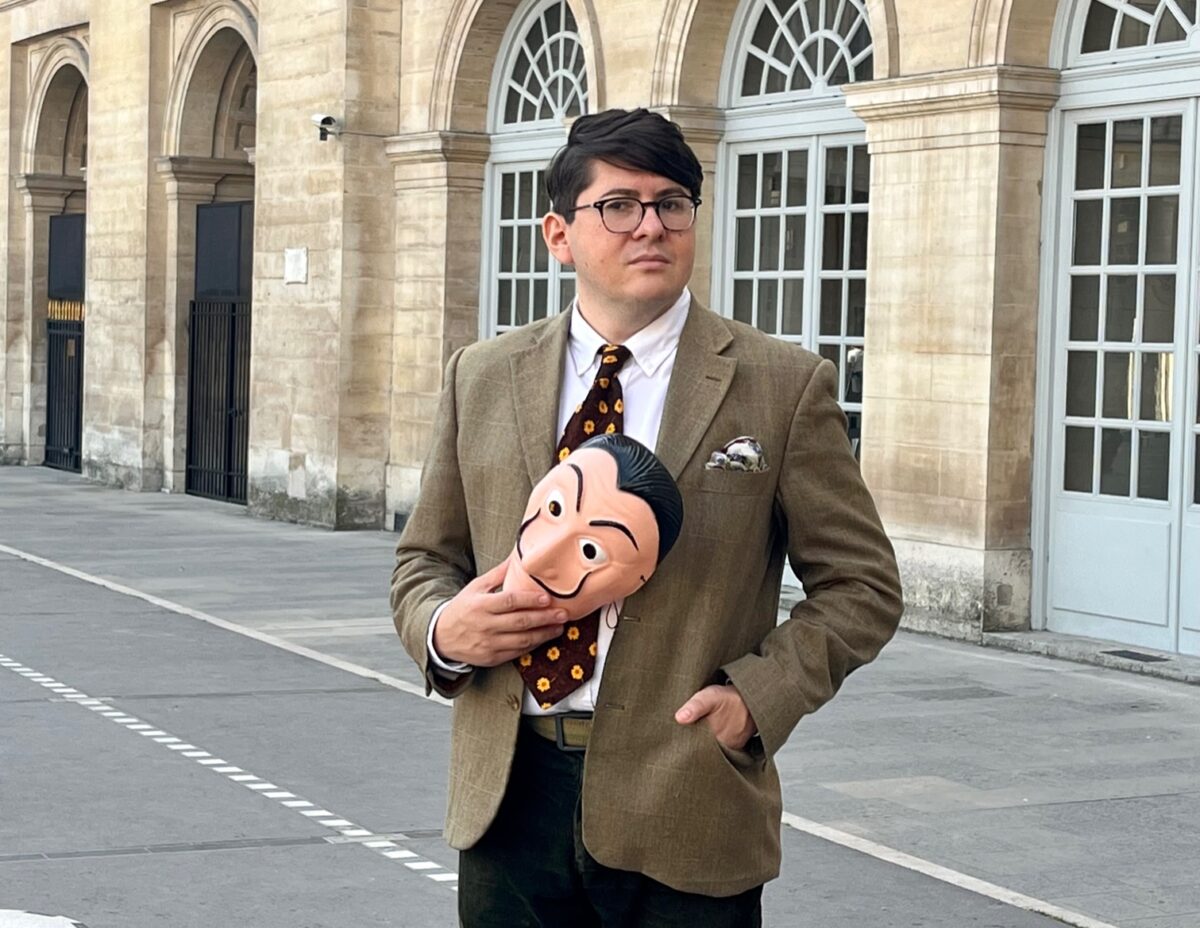Much has been written about Ukraine since the onset of Russia’s full-scale invasion over two years ago, but there is no escaping the fact that the country is still struggling to emerge from centuries of obscurity and disinformation. In his new book, Jewish-Ukrainian Relations and the Birth of a Political Nation, journalist Vladislav Davidzon seeks to enhance our understanding of today’s Ukraine by exploring the remarkably rich history of the Ukrainian Jewish community. This is a timely endeavor. Under the banner of blue and yellow, Ukrainians are currently defending the ideals of Western liberal democracy and, Davidzon writes, “Ukrainian Jewry is at the very core of these historical events.”
In the revolutionary environment that followed the fall of pro-Kremlin Ukrainian President Viktor Vanukovych in February 2014, Ukraine experienced a cultural renaissance; nobody was better suited to chronicle its passage than the literary critic Davidzon, who traveled to the country to co-found the literary journal The Odessa Review together with his wife. Born in Uzbekistan to a Jewish family and raised in Brooklyn, Davidzon led the journal until its closure in 2019. He followed this in 2021 with his first book, From Odessa with Love, an essay collection that spans a decade of trenchant reporting on post-Soviet Ukraine.
In his new 248-page essay collection Jewish-Ukrainian Relations and the Birth of a Political Nation, Davidzon, a correspondent for the Jewish magazine Tablet and nonresident fellow with the Atlantic Council, preaches against radicalism, Putinism, and binary leftist thinking. With this book, he continues his journey from literary critic to leading commentator on contemporary Ukrainian affairs.
This is not your traditional history in which the musical notes of chronology are sounded out in a dull, descending scale. To borrow Lincolnian language, it is a book in which the mystic chords of memory swell the chorus of the Jewish voices of Ukraine, and the music plays from the moment your eyes alight upon the first page.
After a delightful foreword by Bernard-Henri Lévy, Davidzon launches into an introduction in which he nimbly disentangles the web of Ukrainian, Russian, and Jewish identities. He illuminates the cogwheels of Kremlin conspiracy, explains how Putin has inadvertently strengthened Ukrainian national identity, and details an artistic revival centered around Kyiv, as well as the creative bounty with which Ukrainian Jews have enriched and ennobled their nation.
Often, as in the essay “The Jews of Ukraine,” Davidzon describes the resiliency of Jews within Ukrainian society. He recounts their history, from the myths and legends surrounding the medieval Khazars to the birth of Hasidism, and on through Soviet persecution and the Holocaust. This voyage through the centuries eventually arrives at the post-Soviet revival of Ukrainian Jewish life and, as the title of the book suggests, the birth of a modern European nation with Jewish heritage at the heart of its democracy.
Davidzon is attracted to the complexity of people and past events, while remaining stubbornly unswayed by the stumbling groupthink of public opinion or the sloppy spin of shoddy journalism. This shines through in his 2014 interview with Boryslav Bereza, a devout Jew and then spokesperson for the nationalist Right Sector movement. Or his take on Andrey Sheptytsky, the Greek Catholic archbishop of Lviv during World War II, who initially greeted the invading Germans as liberators but later protected Jewish children and rabbis. Davidzon also has much to say about a controversial new Ukrainian statue honouring Symon Petliura, who led the short-lived Ukrainian People’s Republic in the early twentieth century. Tens of thousands of Jews were killed in pogroms during this period, yet Petliura was also a philosemitic liberal who introduced the death penalty for murdering Jews.
In “The Arc of History Bends From Ukraine to Israel and Back Again,” Davidzon covers a symbolically charged meeting between Netanyahu and Ukrainian President Volodymyr Zelenskyy in Kyiv in 2019, unfurling the tapestry of history between Ukraine and Israel and the ongoing debate over the recognition of the Holodomor as a genocide, a sensitive topic for both nations. In a series of essays on the Babyn Yar massacre, he explains how the work and career of director Ilya Khrzhanovsky raises questions about the line between the portrayal of tragedy and sensationalism.
The book also contains some fascinating profiles, from the richly captured life of Yiddish rock star Arkady Gendler and the “mobbed-up Soviet Sinatra” Iosof Kobzon, to the colorful and allegedly criminal adventures of former Kharkiv Mayor Hennadiy Kernes. Each one is a rewarding study in the psychology of identity and the deeper meaning of cultural connection.
There is much more to mine from these pages, which as a whole offer a collection of Jewish-Ukrainian thought and personality that is as beautiful and complex as the people described within. This is the story of Ukraine’s national journey, an ode to the country’s Jewish community, and a masterclass on the ways in which they are intertwined for the benefit of both.
About the author: David Volodzko is the author of The Radicalist, a newsletter on political extremism. His reporting and analysis has been published in New York Magazine, Foreign Policy, The Free Press, Bloomberg, The Nation, The Wall Street Journal, and Forbes. He lives in Washington state.
